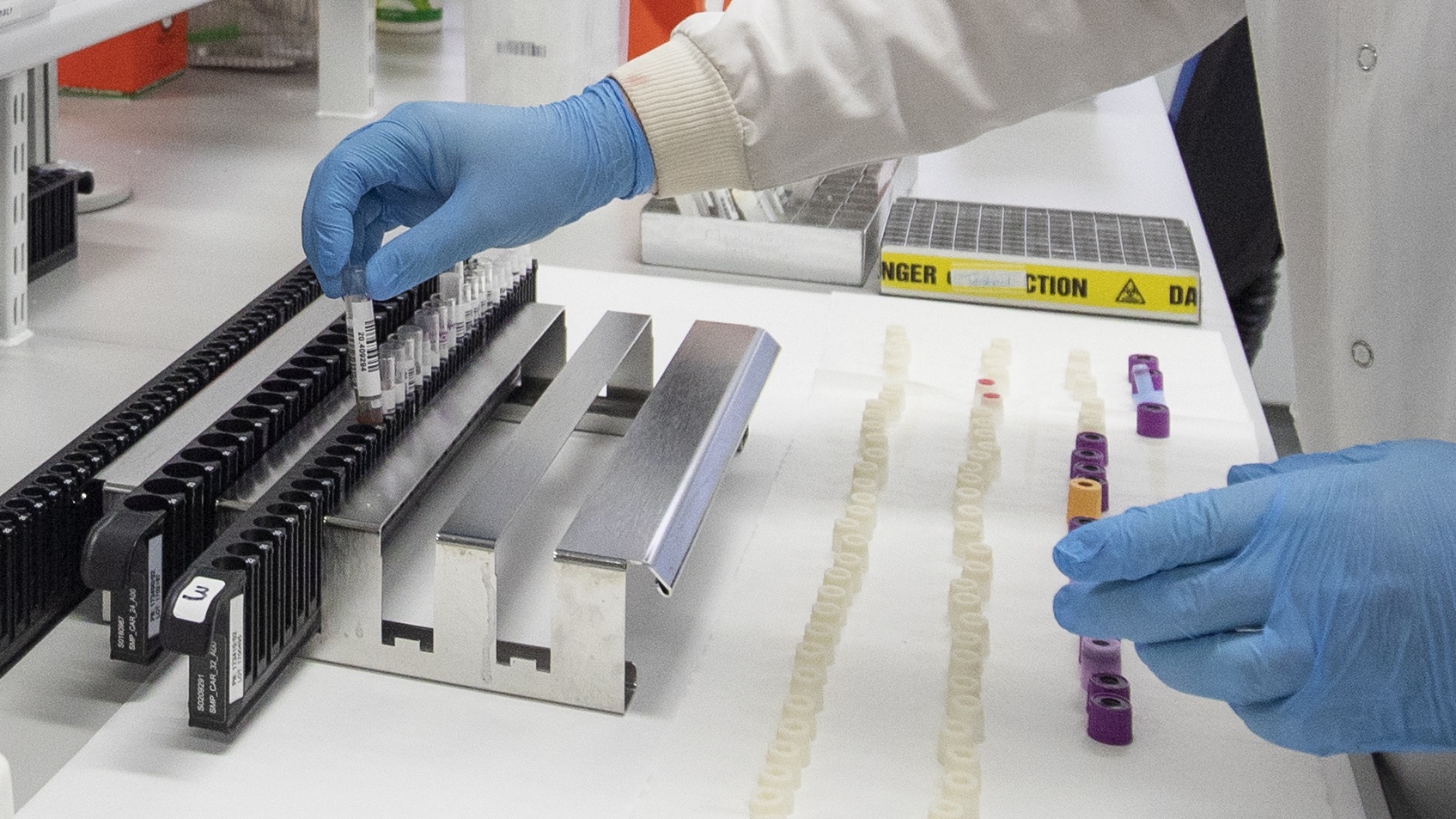Reaction: hopes raised in first Oxford vaccine trial - but what happens next?
Results of first human tests fuel hopes that jab may be rolled out by Christmas

A free daily email with the biggest news stories of the day – and the best features from TheWeek.com
You are now subscribed
Your newsletter sign-up was successful
An experimental coronavirus vaccine developed by Oxford University is safe and generates a strong immunity after a single dose, initials trials on human volunteers have found.
Announcing the breakthrough, Professor Sarah Gilbert, from Oxford’s Jenner Institute, told The Guardian that the AZD1222 vaccine, formerly known as ChAdOx1 nCoV-19, “seems to be behaving just as we thought it would do”.
Boris Johnson welcomed the trial results as “very positive news”, adding: “There are no guarantees, we’re not there yet and further trials will be necessary – but this is an important step in the right direction.”
The Week
Escape your echo chamber. Get the facts behind the news, plus analysis from multiple perspectives.

Sign up for The Week's Free Newsletters
From our morning news briefing to a weekly Good News Newsletter, get the best of The Week delivered directly to your inbox.
From our morning news briefing to a weekly Good News Newsletter, get the best of The Week delivered directly to your inbox.
The prime minister’s optimism was echoed by Health Secretary Matt Hancock, who said that the government has “already ordered 100 million doses of this vaccine, should it succeed”.
Medical experts have “hailed the results as a ‘really important milestone’ which kept alive the hope of a vaccine being rolled out before Christmas”, reports The Telegraph.
The successful trial “increases our confidence that the vaccine will work and allows us to continue our plans to manufacture the vaccine at scale for broad and equitable access around the world,” said Mene Pangalos, head of innovation medicines at pharmaceutical giant AstraZeneca, whichis ready to produce two billion doses.
The initial test findings, outlined in a paper in The Lancet, could see emergency vaccines delivered to some people as early as October, reports The New York Times.
A free daily email with the biggest news stories of the day – and the best features from TheWeek.com
What next?
The findings are “hugely promising” says the BBC’s health and science correspondent James Gallagher, “but it is still too soon to know if this is enough to offer protection”.
“Based on their results, researchers say further clinical studies should be done with this vaccine,” reports Sky News. “More than 4,000 participants are already enrolled in the UK, with enrolment of a further 10,000 people planned as researchers test the AZD1222 vaccine.”
However, the researchers warn that because coronavirus infection rates in the UK remain relatively low, demonstrating the efficacy of the vaccine may take some time.
In a bid to speed up the process, some scientists are calling for “challenge trials”, where a vaccinated person is deliberately exposed to the virus to test whether the jab works.
Adrian Hill, director of the Jenner Institute at Oxford, told a Science Media Centre webinar this week that such trials could start before the end of the year. He explained: “Essentially, you need to tackle three problems - can you find a suitable inoculum, a strain that you can administer safely to volunteers?
“Secondly, where would you do this? It has to be a quarantine facility, where are there suitable places to do that? Thirdly, ideally, having on standby a suitable treatment if the infection took off or was more intense than you anticipated.”
As the world awaits the final verdict on the jab, Johnson’s government says that the UK “has secured early access to 90 million doses of promising coronavirus vaccine candidates”, in addition to the 100 million doses of the Oxford vaccine.